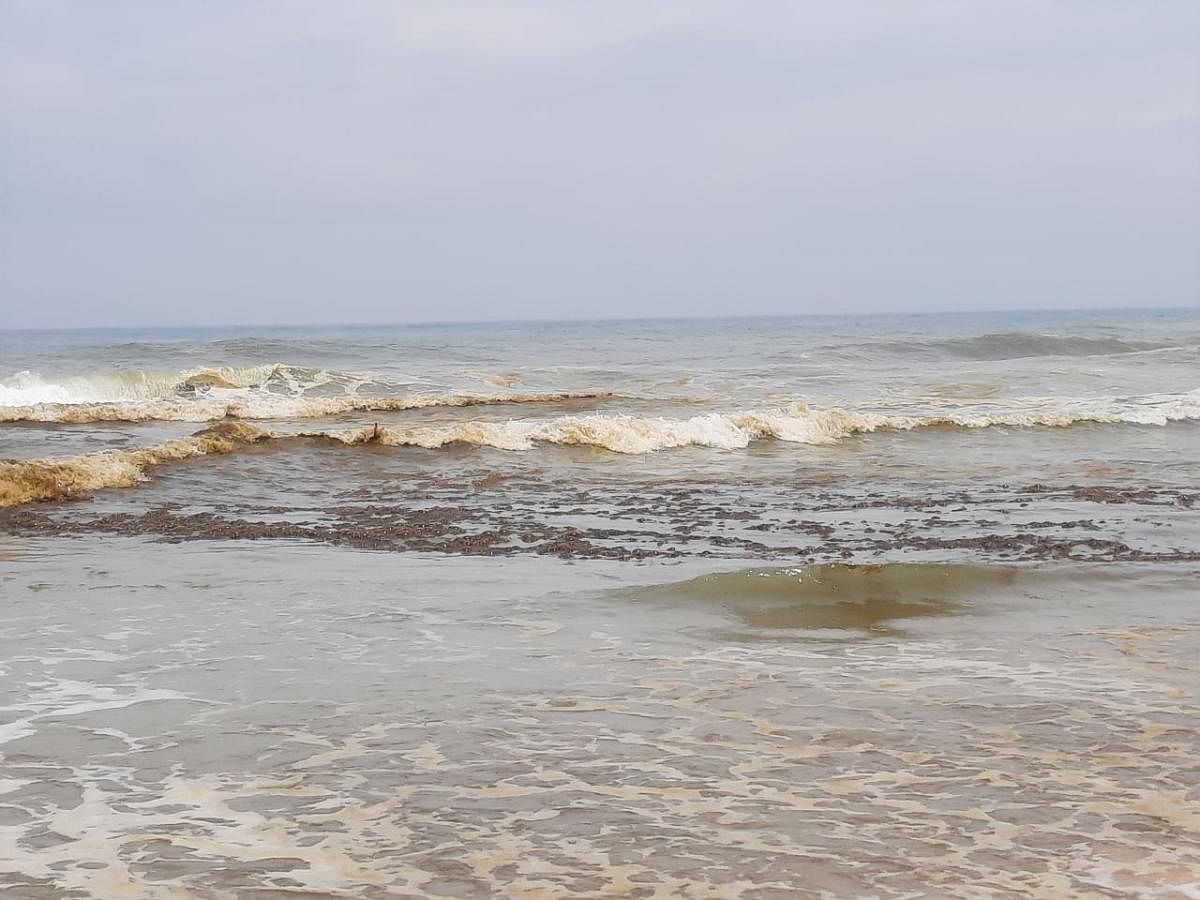
Following complaints of several beaches in and around Surathkal turning green, officials from the disaster management authority, MRPL, MSEZ, CRZ and Karnataka State Pollution Control Board (KSPCB) collected water samples at Doddakoppalu Beach in Surathkal.
Dakshina Kannada Deputy Commissioner Dr Rajendra K V said that a preliminary investigation by officials attributed the discolouration of seawater near Surathkal Beach to algal bloom. An algal bloom is common during the beginning of pre-monsoon rain.
In a report to the deputy commissioner, the officials stated the algal bloom occurs because of high winds and wave action which result in a churning effect.
As a result, sediments at the bottom come up and when exposed to sunlight there will be algal bloom. This is a normal phenomenon before the monsoon, they stated.
However, water samples had been collected to rule out any presence of oil and grease in the water by KSPCB scientists.
The deputy commissioner said that KSPCB will also submit a report on the quality of water. The samples have also been sent to Central Marine Fisheries Research Institute (CMFRI).
Locals had alleged that sediments had surfaced on the shores of Doddakoppalu in Surathkal on Friday. It was spread across a distance of two to three kilometres along the shore.
The spotting of sediments in the past few years had raised concern among fishermen and environmentalists. Tarballs were formed out of oil waste dumped by ships mid-sea.
Though vessels were barred from dumping oil waste into the sea, they dispose of it at ports by paying a certain fee, the locals had charged.
Sea bass fish, part of cage farming in Phalguni river in Tannirbhavi and Bangrakulur areas, was found dead on Saturday.
Farmers suspect pollution as the reason for the mysterious death of fish.